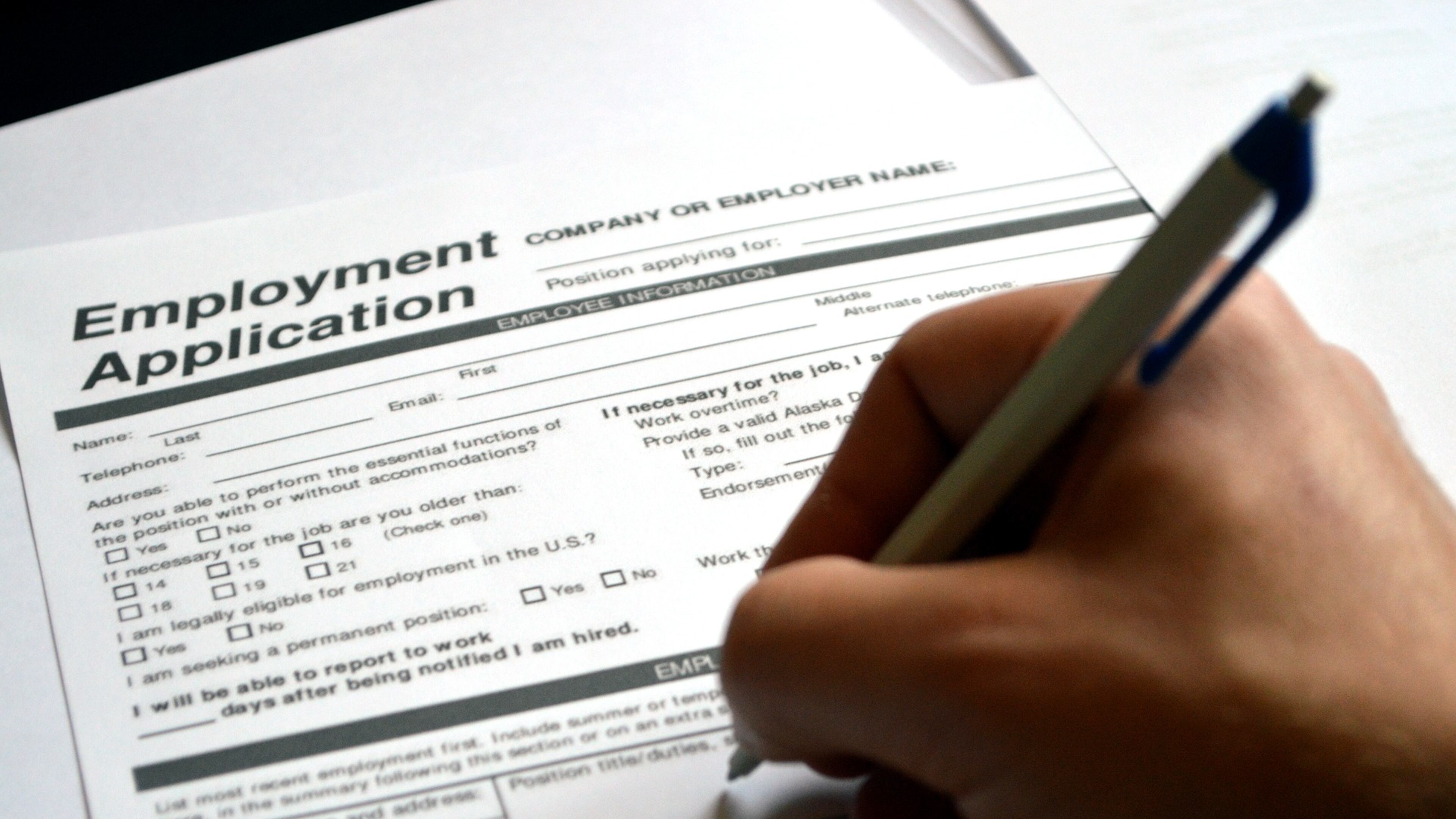Facing a tight job market, Gen Z relies on fiction to get ahead

Members of Gen Z, born between 1997 and 2012, currently make up about 15% of the workforce. According to several recent studies, almost half them are also making up qualifications on their job applications and resumes.
Some of the people surveyed admitted to telling big lies — listing fake jobs at fake companies — while others confessed to exaggerating details like the length of time employed or special skills they possess, such as technology and language.
It would be sanctimonious to accuse Gen Z of doing something that every other generation has also done, but they happen to be doing it more than everyone else.
One survey from career.io found that 47% of Gen Z, 39% of millennials, 20% of Gen X and 9% of baby boomers said they have lied on their resumes to get a job. The survey also reported that men tend to embellish their skills and qualifications more than women.
It makes sense that the less experience you have, the more you feel the need to inflate your role to get a job you know you can do. Rather than chalking it up to a generational shortcoming, we should take a deeper look at the reasons our job market seems to encourage lying.
We have adopted a work culture that rewards employees who are more performative than productive. We have a system in which honesty is undervalued and where mentorship is lacking. Who can fault a young employee for fudging a few facts to get in the door or for caring more about themselves and their personal goals rather than those of the company they work for?
In Atlanta, people between the ages of 20-24 comprise about 10% of the population. The relatively affordable economic conditions and educational opportunities are the draws that attract Gen Z to the city and help create a sense of community for younger residents.
But once they get here, the prospects for work are not as promising, in part because entry-level jobs are disappearing. The unemployment rate for college grads has risen 30% since September 2022, compared with about 18% for all workers, according to data from the Federal Reserve Bank of New York.
The data coincide with predictions from economic experts that AI has begun encroaching on entry-level jobs, taking over the mundane tasks and roles that were once a rite of passage for college graduates.
“In tech, advanced coding tools are creeping into the tasks of writing simple code and debugging — the ways junior developers gain experience. In law firms, junior paralegals and first-year associates who once cut their teeth on document review are handing weeks of work over to A.I. tools to complete in a matter of hours. And across retailers, A.I. chatbots and automated customer service tools are taking on duties once assigned to young associates,” wrote Aneesh Raman, chief economic opportunity officer at LinkedIn, in a May op-ed for The New York Times.
As AI is adopted on a larger scale, industries like finance, travel, food and professional services are also likely to see a decline in entry-level tasks.
I graduated from college into an economic recession and the job prospects were slim. I had a degree in economics, summer work experience and no lies on my resume. Though I applied to jobs daily, did informational interviews and networked with anyone willing to talk to me, I couldn’t find the kind of job I wanted. I spent a year managing a health club by day and coding data entry by night until I landed a job as an analyst for a market research firm.
That was in 1992, but it sounds a lot like the experience that many 2025 college graduates have now: cobbling together a work life that allows them to survive while seeking careers that offer the opportunity for growth and a sense of purpose.
Back in 2013, when millennials were seeking jobs in the wake of the Great Recession, the Center for American Progress published a report noting that workers who are unemployed as young adults earn lower wages for many years following their period of unemployment. They miss out on meaningful work experience and skill development.
The report showed young adults who experienced six months of unemployment at age 22 could expect to earn approximately $22,000 less over the next decade.
The loss of entry-level jobs means anyone without wealth or connections will have a more challenging entry into the workplace.
Last month, a Gen Z paralegal posted in a Reddit thread about how challenging it has become to move up. “I have experience in the role I’m looking for. I’ve had people look over my resume 900000 times. I’ve worked with more recruiters than I can count. … It’s been 5 months of unemployment.”
The plan of action? Adding lies to their resume, even if it ultimately gets them fired. “Some money is better than no money,” the original poster said.
Raman suggested the solution is to redesign entry-level jobs by giving workers higher-level tasks than those that can be phased out by AI.
It sounds like a good plan until you consider that students coming out of college with little to no work experience would have an even greater leap to convince employers they can do higher-level work than the generations before them did with the same level of education and experience.
Given all of this, can we really blame Gen Z for lying on their resumes and job applications? If we make it any harder to get an entry-level job or make entry-level jobs harder, Gen Z probably won’t be the only ones embellishing their qualifications.
Everyone will have to aim higher to get hired.
Read more on the Real Life blog (AJC.com/opinion/real-life-blog), find Nedra on Facebook (facebook.com/AJCRealLifeColumn) and X (@nrhoneajc) or email her at nedra.rhone@ajc.com.



